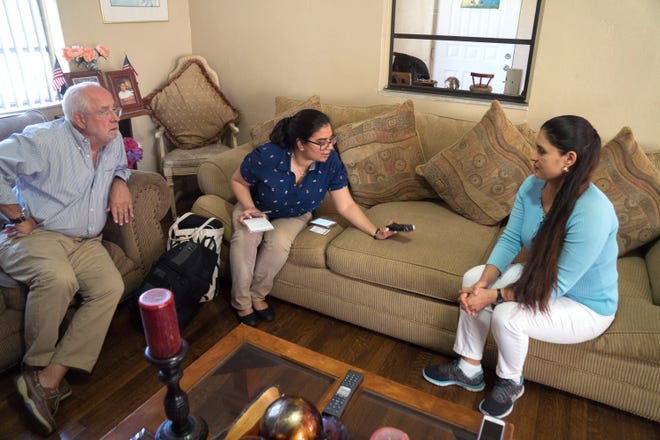The Journal Sentinel is conducting a source audit. Here's what we hope to learn.
 Greg Borowski
Greg Borowski
A few months back, I wrote a column about how I would approach the job of executive editor of the Milwaukee Journal Sentinel. In it, I expressed what I told our staff when I took on the role:
This is not my newsroom. This is our newsroom. This is the city’s newsroom, because we’re here to serve our community.
So, what does that mean?
For starters, it means listening to our community. It also means understanding who it is we are talking to, and who we are not hearing from.
That’s why we – and a cohort of other newsrooms around the country – are working with the American Press Institute to track the demographic backgrounds of people quoted in our stories using a tool called Source Matters.
We hope the effort, often called a source audit, will help us understand who we are including in our stories and how that shapes the stories we are writing. We began this in June and will continue at least until the end of the year. Once we get a baseline starting point, we’ll set some goals – and we’ll let you know how we are doing along the way.
After each interview, reporters are gathering information on the age, race and gender of their sources, as well as whether they are an “official” or a “non-official.” That is, a public official or spokesperson, or an average person – a homeowner, a shopper, a farmer, a teacher.
This is not a quota system. This is about doing quality journalism.
Being the community’s newsroom means seeking out views and voices we don’t normally hear from.
It means talking to people affected by decisions, not just those making them. It means looking at how programs and policies play out in real life, not just in committee meetings or political debates. It means telling stories that reflect the fullness of life in our community.
As we rolled this out in the newsroom, I found myself thinking back to my own time as a City Hall reporter at the Journal Sentinel. I wondered how I would have fared if we did such an inventory back then. There were surely weeks when everyone I quoted was a politician, a candidate, a political appointee, a spokesperson or somebody on the payroll of government – or a group trying to influence decisions.
It doesn’t mean I was doing a bad job.
It does mean I could have better followed the journalism adage: More city, less hall.
Meanwhile, we have many other initiatives that are aiming to better connect with readers – and you’ll hear more about them in the coming weeks.
For instance, we’ve launched an “Inside the Journal Sentinel” program, which allows subscribers to visit our newsroom and hear from members of our team. The inaugural event was with photojournalist Mike De Sisti.
And we’ve added staff to create our new Milwaukee Connect desk, a four-person team focused on stories to help you navigate life – from what to do when the area is plagued by wildfire smoke to understanding the impact of the new Milwaukee sales tax.
It’s all part of serving the whole community.
And representing it, too.
Greg Borowski is executive editor of the Milwaukee Journal Sentinel. You can follow him on Twitter@GregJBorowski and reach him viagreg.borowski@jrn.com.
Connect with the Journal Sentinel
- Support our reporting on the environment and underserved communities: jsonline.com/RFA
- Send a news tip: projects.jsonline.com/tips
- Reach the newsroom: jsmetro@journalsentinel.com or 414-224-2318
- Subscribe and support independent journalism: jsonline.com/deal